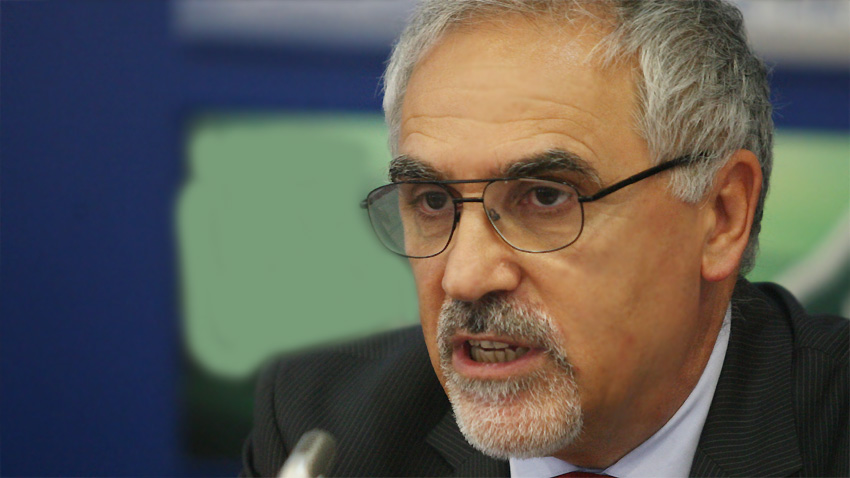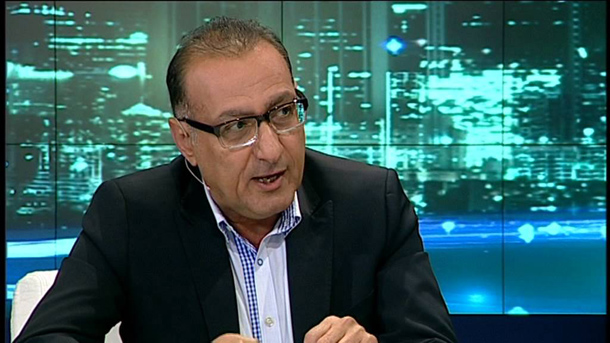When on 911 the planes crashed into the twin towers we all had to face the fact that America had been dealt a blow straight to the heart and the world would never be the same. America then sacrificed part of its freedom to guarantee security and for this, was criticized by liberal Europe. But in 2015, Europe itself was struck in the heart twice: in January with the Charlie Hebdo attack and in November when everything France stands for went up in flames.
 “After the bloodbath in Paris, emotions are running high, people are in shock and for the first time, perhaps there is something like fear creeping in,” says journalist Rumyana Ugarchinska who lives in Paris. “People started going out, talking about what happened and showing the spirit they demonstrated during the march after the Charlie Hebdo terrorist attack. If we have to ask ourselves: Why France, why Paris? – perhaps the answer would be that they are the kind of symbols the ISIS terrorists are targeting, they want to instill terror in us, to spread their ideology, arms in hand. Paris is everything they abhor. That is why their target was the way of life, the freedom of thought, tranquility and the spirit that has made Paris the symbol it is today.”
“After the bloodbath in Paris, emotions are running high, people are in shock and for the first time, perhaps there is something like fear creeping in,” says journalist Rumyana Ugarchinska who lives in Paris. “People started going out, talking about what happened and showing the spirit they demonstrated during the march after the Charlie Hebdo terrorist attack. If we have to ask ourselves: Why France, why Paris? – perhaps the answer would be that they are the kind of symbols the ISIS terrorists are targeting, they want to instill terror in us, to spread their ideology, arms in hand. Paris is everything they abhor. That is why their target was the way of life, the freedom of thought, tranquility and the spirit that has made Paris the symbol it is today.”
“One for all, all for one” – the musketeer motto that is so very French, is now a metaphor of the trials we have to wade across. The political settlement process in Syria can begin, said EU Foreign Policy Chief Federica Mogherini after the close of the Vienna talks on Syria.
 “It is unfortunate that we had to have one more terrorist attack in Paris to set international diplomacy in motion towards finding a more responsible solution,” says Lyubomir Kyuchukov, Director of the Institute of Economics and International Relations. “The Vienna meeting mapped out certain measures for settling the Syrian conflict, though they may turn out to be too little too late. The question arises how people in Syria will be able to live with one another from now on. Of course, the war must first be ended, but we have to think about how peace shall be built. Unlike the civil conflict in Syria which could be settled by political means, the fight against the so-called Islamic State has no political solution. There is no room for negotiations, no side to be negotiated with. It is a war on terrorism and the only means are military means. The solution can only come as a result of our concerted efforts. Any isolated attempt to resolve one’s own national, ideological or political problems against the backdrop of this global confrontation can only lessen the effect of the steps taken against global terrorism. In the past two months the situation in the field has changed a great deal and the international community has shown it is ready to grapple with ISIS in earnest. That is the reason why it was not unexpected that the so-called Islamic State attempted to transfer the confrontation to Europe, to demotivate the countries fighting against it and to drive a wedge between them. This modus operandi is only logical.”
“It is unfortunate that we had to have one more terrorist attack in Paris to set international diplomacy in motion towards finding a more responsible solution,” says Lyubomir Kyuchukov, Director of the Institute of Economics and International Relations. “The Vienna meeting mapped out certain measures for settling the Syrian conflict, though they may turn out to be too little too late. The question arises how people in Syria will be able to live with one another from now on. Of course, the war must first be ended, but we have to think about how peace shall be built. Unlike the civil conflict in Syria which could be settled by political means, the fight against the so-called Islamic State has no political solution. There is no room for negotiations, no side to be negotiated with. It is a war on terrorism and the only means are military means. The solution can only come as a result of our concerted efforts. Any isolated attempt to resolve one’s own national, ideological or political problems against the backdrop of this global confrontation can only lessen the effect of the steps taken against global terrorism. In the past two months the situation in the field has changed a great deal and the international community has shown it is ready to grapple with ISIS in earnest. That is the reason why it was not unexpected that the so-called Islamic State attempted to transfer the confrontation to Europe, to demotivate the countries fighting against it and to drive a wedge between them. This modus operandi is only logical.”
Christianity and Islam have existed side by side for centuries. Migration is also something that has always existed. What happened to change the picture so radically?
 “I think it is Europeans’ own fault, because they misjudged many processes going on in Europe and the Middle East,” says Dr. Mohamed Halaf, a Bulgarian journalist of Arab origin. “In the course of 60 years, they supported the regimes of dictators which weakened societies there. Europe also misjudged the processes among immigrants living on its territory, some 40-50 million in number. We see second or third generation Frenchmen or Belgians joining ISIS. Some come back with training to perpetrate terrorist attacks against the people who welcomed them. Europeans are to blame for having allowed hate speech at mosques, and the spread of radical Islam. Why is inciting hatred of Christians, of Jews being allowed? Not a single nation has given up their freedoms. But democracy cannot be imposed by war, people have to be left to find their own way. People have to get accustomed to the rules of democracy.”
“I think it is Europeans’ own fault, because they misjudged many processes going on in Europe and the Middle East,” says Dr. Mohamed Halaf, a Bulgarian journalist of Arab origin. “In the course of 60 years, they supported the regimes of dictators which weakened societies there. Europe also misjudged the processes among immigrants living on its territory, some 40-50 million in number. We see second or third generation Frenchmen or Belgians joining ISIS. Some come back with training to perpetrate terrorist attacks against the people who welcomed them. Europeans are to blame for having allowed hate speech at mosques, and the spread of radical Islam. Why is inciting hatred of Christians, of Jews being allowed? Not a single nation has given up their freedoms. But democracy cannot be imposed by war, people have to be left to find their own way. People have to get accustomed to the rules of democracy.”
On Sunday, liturgies were held at all Bulgarian Orthodox churches in memory of all people who killed in car accidents in this country. The Church took the occasion to commemorate also the victims of the the bloodbath in the French capital. Prime Minister Boyko Borissov stated this was Europe’s 911:
“We have to rethink, and quickly, politics and interaction among institutions, but also politics regarding work with these high-risk groups, because with these “ghettoes of tolerance” – and you can see the profile of the terrorists.”
Shall we be able to stand united in the war of civilizations on the side of freedom, democracy and tolerance or shall it be “every man for himself”, shall we consoles ourselves that we are too small, too insignificant to attract such fatal attention? Can it be easy to overcome the fear that we could, all of us be the target of terrorists? It would be so much easier if we knew exactly who the enemies are and what feeds their hatred. But – there are no easy answers here, no clear-cut good guys and bad guys.
English version: Milena Daynova
Fire kills dozens in Turkish mountain resort Kartalkaya 78 people died in a hotel fire in the Turkish ski resort of Kartalkaya in north-western Turkey. Celebrities and entire families were among the dead, and dozens..
North Macedonia’s Prime Minister Hristijan Mickoski stated that the Macedonian issue is not closed, because the European Court of Human Rights has ruled that the rights of people with a Macedonian identity in Bulgaria are not being respected...
Bulgaria has emerged from a long political slumber – 81 days after the sixth early parliamentary elections, the National Assembly elected the country's 105th government. A total of 125 MPs supported the coalition cabinet, formed through an agreement..

+359 2 9336 661
